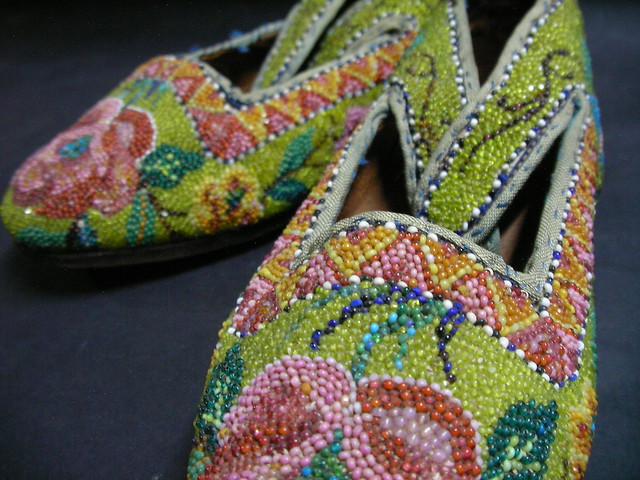- chinese emigrated from china to melaka, penang, singapore and indonesia during colonial era
- "tanah melayu" was ruled by british during that time
- they married local females
- their distinct background, cultures and customs blended together and became baba nyonya
- “Baba” refers to the male while “nyonya” is female
- most of them are not Muslim even though they practice Malay traditions
- food : Kapitan chicken, buah keluak, duck sup, laksa , Kueh Lapis
- nyonya food is made up of pungent and strong-flavored spices
- their language is mixed of Malay language, Hokkien dialect and some other term
- it is mostly used by older generations in an informal ocassion, young generations had lost most of the language
- colthes: Baju Panjang (Long Dress) was adapted from the native Malay's Baju Kurung
- Beaded slippers called Kasot Manek were a hand-made
- In Indonesia, they develop their own Kebaya, most notably 'kebaya encim', and developed their own batik patterns, which incorporate symbols from China.for the Baba they will wear baju lokchuan(which is the Chinese men full costume)
- religion: Taoism, Confucianism and Chinese Buddhism
- they celebrate Lunar New Year and the Lantern Festival
- marriage: Proposals of marriage were made by a gift of a pinangan, a 2-tiered lacquered basket, to the intended bride's parents brought by a go-between who speaks on behalf of the suitor
- Their wedding ceremony is largely based on Chinese tradition
- they have museum in Heeren Street, Jonker Street and other streets in malacca
- politic : loyalty was strictly to Britain
- they did not support Malaysian nor Indonesian Independence
- in the first half of the 20th century, they are starting to support Malaysian and Indonesian independence.
- in Indonesia three Chinese communities started to merge and become active in the political scene.
- currently, Peranakan culture has started to disappear in Malaysia and Singapore.
- independence from the British have resulted in the assimilation of Peranakans back into mainstream Chinese culture
- Singapore classifies the Peranakans as ethnically Chinese
- In Malaysia, the standardization of Malay as Bahasa Melayu — required for all ethnic groups — has led to a disappearance of the unique characteristics of Baba Malay.
- In Indonesia, the Peranakan culture is losing popularity to modern Western culture, but to some degree Peranakans try to retain their language, cuisines and customs









source:
http://koyli.com/babanyonya.htm
http://en.wikipedia.org/wiki/Peranakan
http://ms.wikipedia.org/wiki/Baba_dan_Nyonya
